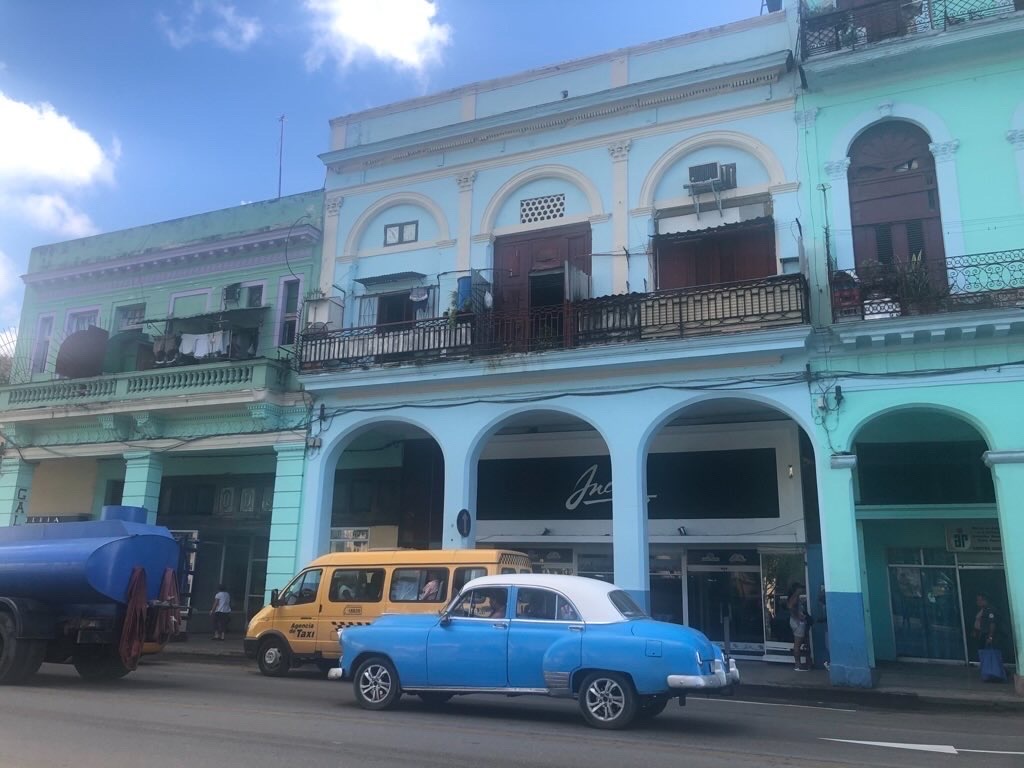
When Hurricane Ian struck Pinar del Rio, a province in the westernmost tip of Cuba, the entire island went dark, leaving 11 million Cubans without electricity. A couple days later, videos began to emerge of Cubans demonstrating in the streets. They may be the largest protests since July 2021.
At the time of writing, most of the island remains dark, save for Varadero and Havana, two cities with a heavy amount of tourism. Officials claim to be working to restore power across the island, but Cubans and Cuban-Americans are skeptical.
“I think the government is taking advantage of the fact that the hurricane passed,” said Alejandra Hernandez, a sophomore biochemistry major whose grandfather, aunt and cousins live in Matanzas, Cuba.
She believes the Cuban government is attempting to preserve power by lengthening the blackout period at the expense of Cubans who live outside of the more touristic areas.
Cubans are now protesting the blackouts. Similar to past protests, the demonstrations are evolving into a movement against the government as they spread across the island.
According to NPR, the government reports this power outage to be the result of failures in the power grid, particularly connections between the east, center and west power grids following years of deterioration.
The hurricane made landfall early Tuesday, Sept. 27 as a Category 3 storm. Winds tore through the Pinar del Rio region at maximum speeds of 125 miles per hour. The storm surge flooded the area, leaving homes destroyed and farms in disrepair.
The effect of Hurricane Ian is particularly acute in Cuba where food shortages and rampant inflation already make day-to-day living difficult. The communist regime, led by President Díiaz-Canel, has long struggled to support the needs of its people.
“It’s more not like, ‘Oh, what do I want to eat today?’ But like, ‘what can I find to eat today? What will be there?” said sophomore health sciences major, Daniela Dechard, whose brother lives in Havana.
Dechard’s brother also mentioned deodorant and soap shortages. During the upcoming fall break, Dechard will travel to Havana to visit her brother, while also helping equip him with essentials, such as toiletries and food.
“There’s no plan for preparing for a hurricane,” Hernandez said. “The only plan that you would have is from your family that’s outside of Cuba.”
Her family in Miami has long been sending supplies to her family in Cuba, including a generator and batteries.
This current blackout, already stretching a week, keeps Cubans from boiling water, an essential step to safely consuming tap water and has led to the spoiling of the already scarce amount of food in Cubans’ homes.
Blackouts are common throughout Cuba, occurring at least once a day or more depending on the region. When Hernandez visited Santa Marta, a beachside locality in Matanzas, Cuba, in late August, she noted three blackouts of a few hours each day.
Dechard’s brother similarly reports blackouts in spurts of six hours, alternating between six hours of power and six hours without.
“Usually what people do in Cuba right when the power goes on, which is at any random hour, they immediately start to cook or clean or do the daily tasks they have to do in order to survive,” Hernandez said.
The current protests are reminiscent of the July 2021 movement, Cuba’s largest demonstration since 1994 sparked by severe food and medicine shortages along with an initially slow vaccine campaign and mounting COVID-19 deaths. While far from the same scale, Cubans are, once again, in the streets.
According to Cubalex, a Cuban human rights group, 1,329 people were verifiably detained in the 2021 protests. Dechard notes some key differences between these protests and those from 2021 that she’s viewed on social media.
“Of the videos that I’ve seen in Cuba with the protesting, I would see the Cubans protest directly towards the police and the police wouldn’t do anything about it,” Hernandez said.
In contrast, she notes, Cuban police attacked, harassed and jailed protestors in 2021.
“I feel it’s doing gradual changes, even though it’s not like the biggest change in the world,” Hernandez said.
Unfortunately, the exact details of events on the island are difficult to determine. The government tightly controls the flow of information, regulating the internet and freedom of speech.
On Thursday and Saturday nights, internet connectivity was interrupted and restored the following mornings.
“It should be more widely spread because it shows the magnitude of things going on in Cuba and we only see the tip of the iceberg,” Dechard said. “The more we can spread the information that we do have from Cuba, the more awareness and hopefully people want to push for change.”
Rebecca Menendez, a junior studying biomedical engineering, has started a drive for nonperishable items, canned goods, batteries and feminine health products with Caribbean Student Association to help Puerto Rico and Cuba and draw attention to their crises. All goods will go to Puerto Rico-based nonprofit Taller Salud.
“I also hope to continue those efforts to recognize our brothers and sisters on the island because if we don’t do it nobody will,” Menendez said.







